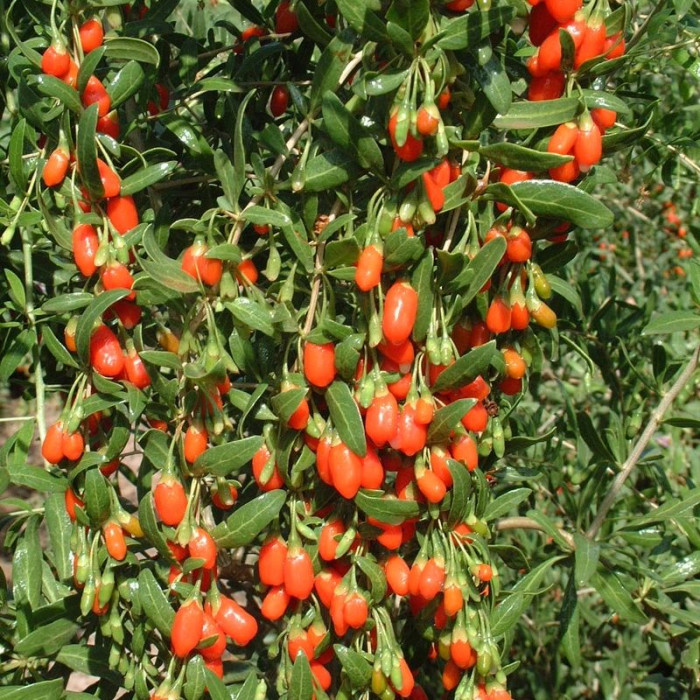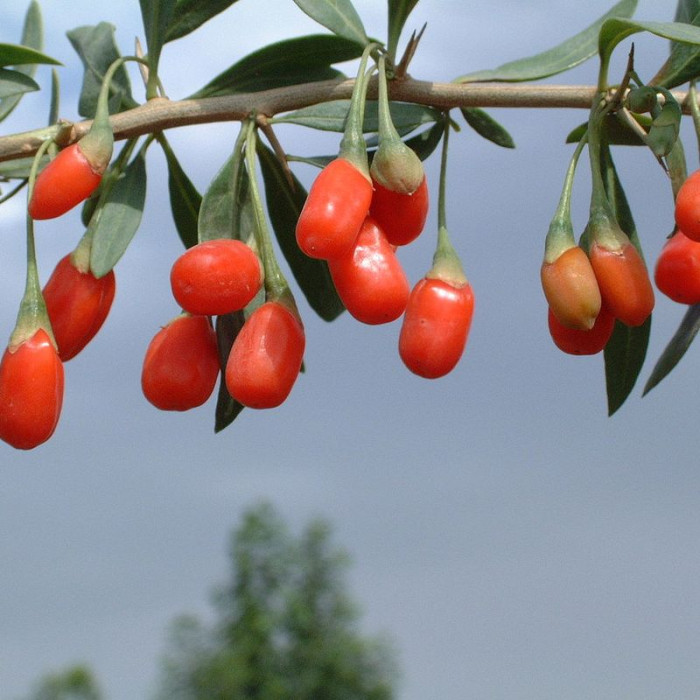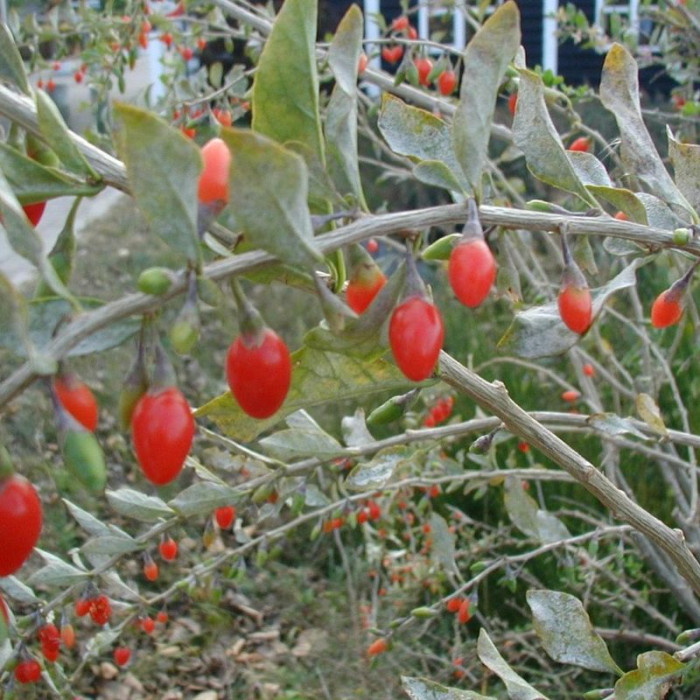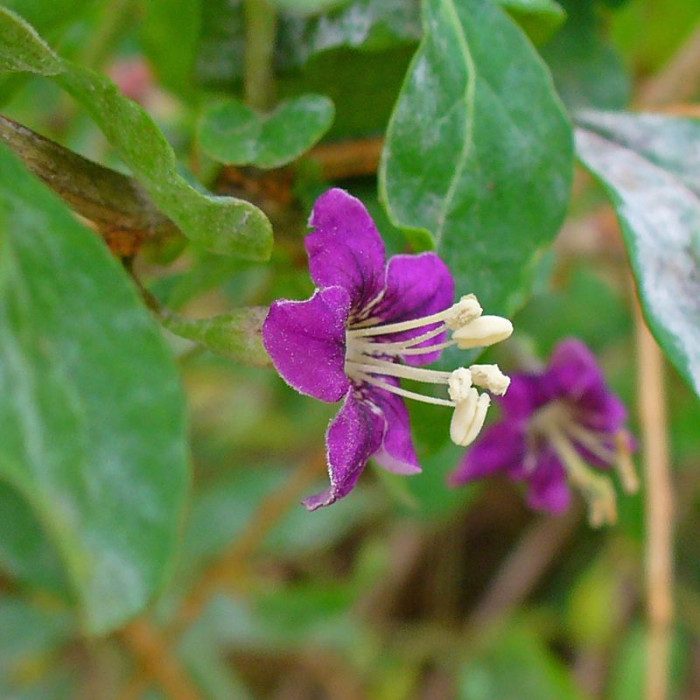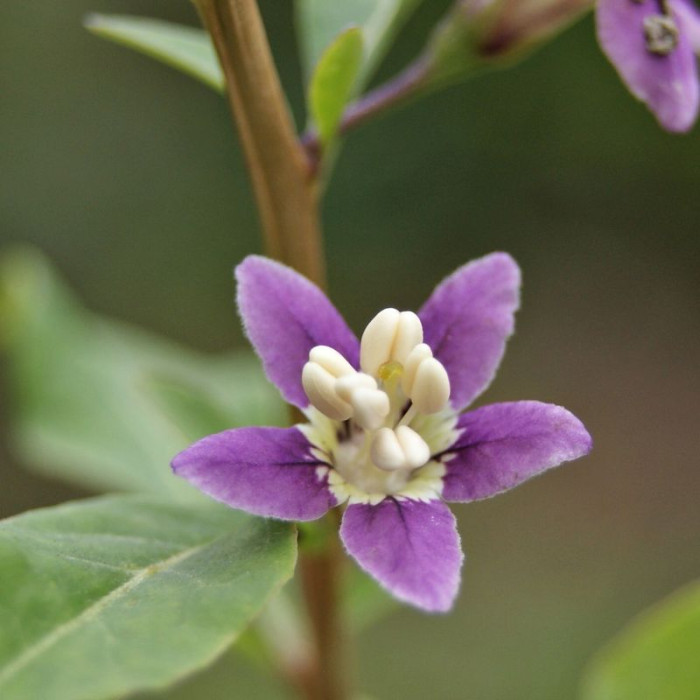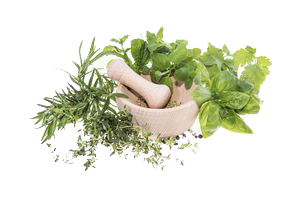Chinese wolfberry, goji, barbary matrimony vine, red medlar or matrimony vine / Lycium barbarum
A small coral-red medicinal berry known as wolfberry in the West, and Gou gi zi (Goji) throughout Asia.
Fruit plant of the Solanaceae family, genus Dereza. Culturally grows in the north of the central part of China in the Ningxia region, in Tibet and the Himalayas. Goji bushes reach a height of 3.5 meters. The branches are covered with thin spines, the leaves are simple, entire, elliptical. The flowers are purple (violet-pink), bell-shaped. It can grow and bear fruit in all regions of Ukraine.
Goji is an unpretentious outdoor shrub 2-4m high, with soft, semi-curly stems from the Solanaceae family. The branches are covered with short spines. The leaves are alternate, short-petiolate, elliptical. Flowers are bell-shaped, several in leaf axils, purple. Goji fruit is a juicy red berry.
The owners of the most pronounced beneficial properties, by right, are the Goji fruits growing on the plateau of the Ningxia region. The local alkaline soil is extremely rich in mineral salts, with which it is filled by the Yellow River flowing in this area. The waters of the river bring loess with them. This rock, in the form of yellow dust, settles on the ground and naturally fertilizes the soil, enriching it with unique nutrients.
In descriptions of the beneficial properties of berries, they are also often called: Paradise Berry, Longevity Berry, Red Diamond, Tibetan barberry. And this is not surprising. After all, for many centuries, Goji berries have been used in traditional Asian medicine as a general tonic that helps keep the body in great shape.
Goji berries have many unique healing properties, including:
- strengthen immunity;
- slow down the natural aging process;
- improve metabolism;
- contribute to weight loss;
- strengthen the nervous system;
- reduce the feeling of fatigue;
- regulate blood sugar levels;
- improve mood, help fight depression;
- improve skin condition;
- improve sleep;
- increase endurance, help restore strength, for which they are very popular among athletes.
The unique properties of Goji berries include: antioxidant, antitumor, cytoprotective, immunomodulatory.
Antioxidants form the basis of the body's defenses and help it resist the damaging effects of free radicals. The data from the ORAC (Oxygen Radical Absorbance Capacity) index table prove that goji berries are the most powerful natural antioxidant.
Studies have shown that the daily requirement of a person is about 5,000 ORAC units. 100 grams of goji berries contain 30300 ORAC units, which is 6 times the minimum amount required by the human body every day to resist free radicals.
One of the unique features of goji berries is that they contain high amounts of polysaccharides. Polysaccharides are complex sugars. They improve the general psychophysiological state of a person, increase the body's resistance to fatigue, improve mood, improve memory and give sound sleep.
Only Goji berries contain four unique biologically active polysaccharides (LBP1, LBP2, LBP3 and LBP4), which are not found in any of the currently known plants on Earth.
Due to their beneficial properties, goji berries are included in many diets, such as the Dukan diet. Goji berries improve metabolism, promote weight loss, while providing the body with all the necessary vitamins and minerals.
Goji berries owe their antioxidant and anti-inflammatory properties to the presence of carotenoids and flavonoids in them.
Carotenoids are natural pigments found in red-orange fruits and vegetables. Carotenoids are useful for improving vision and skin condition.
Flavonoids are natural compounds that have the ability to cleanse the body of free radicals. They perform an important protective function. They prevent the development of cardiovascular diseases, neurodegenerative diseases, allergies, diabetes, osteoporosis.
Goji is an unpretentious plant, therefore it does not require any special care measures, it prefers fertilized soils, it grows worse on acidic ones. The plant is photophilous, tolerates light shading, is very stable in urban conditions, tolerates a haircut well. High frost resistance. It grows relatively quickly; in dry summers, the plant needs additional watering, like most fruit crops. It is almost not damaged by pests and diseases, so it is almost not treated with pesticides.
Growing Goji from seeds
Goji, grown from seeds, begins to bloom in the second year. But the harvest can be expected for 3-4 years after planting. The plant is quite resistant to the vagaries of the weather, since it comes from a mountainous area, where frosts, droughts, and prolonged downpours with a storm wind are not uncommon.
Goji seeds are small, up to 1 mm in diameter; they do not require mandatory pre-sowing treatment: scarification, dressing, etc. and at the same time they rise very well. For successful germination, they need to provide constantly moist and moderately warm (20-25 degrees) soil and good lighting. Ideal conditions for seedlings can be obtained using a small container, which is best covered with transparent plastic wrap to prevent drying out.
Goji seeds are sown on the surface of the soil, they should not be buried more than 2-3 mm, otherwise it will be difficult for their thin, tender sprouts to break through to the surface. Since the sown seeds are on the surface, it is important to ensure that the soil does not dry out even for a short time until the moment of germination. After a few days, the seeds will open, and future plant roots will sprout from them. Germination itself is fairly fast.
At the time of germination, the seeds need to provide a constant temperature, it should not fluctuate more than 7-10 degrees. However, at home this is not a problem, daily temperature fluctuations in the apartment rarely exceed 3-4 degrees. It is only necessary to ensure that the sown seeds do not fall under the flow of cold air from an open window, or vice versa, do not overheat from the battery radiator or a nearby electric heater.
Caring for goji sabers
After germination, it is better to remove the film. However, it is important to monitor the soil moisture, and in no case allow it to dry out: during this period, rapidly developing sprouts require a lot of liquid for growth, and if there is a lack of moisture, they can dry out. In order not to flood the soil, it can be regularly sprayed with a spray bottle.
Plants will be ready for transplanting into separate pots after the formation of the second or third pair of leaves, this can be expected in 2-4 weeks.
By this time, they will slow down their growth somewhat, and begin to form a thickening stem. You should not linger with the transplantation of young plants: their root, like the sprout, is characterized by rapid growth, and it grows mainly in depth. Pots for young plants should have a depth of at least 7 centimeters, then the elongated long roots will be free in them.
Planting a goji seedling
For planting, dig a hole 40 cm deep and 50-60 cm wide. Thoroughly mix the earth with organic and mineral fertilizers: 8–10 kg of compost (humus, peat), 150–200 grams of superphosphate, 30–40 grams of potassium sulfate or wood ash.
Recommended soil mixture: garden soil, humus (peat), river sand (coarse) in equal proportions. The plant is planted at a distance of 1.5-2 meters. When planting, the seedling should be slightly deepened. After planting, water abundantly and mulch with humus or peat. Abundant, but not too frequent watering is necessary during the growth of shoots, flowering, fruiting and in the fall, after picking berries.
Goji is resistant to pests and diseases, only problems with powdery mildew are possible.

No questions about this product, be the first and ask your question.


